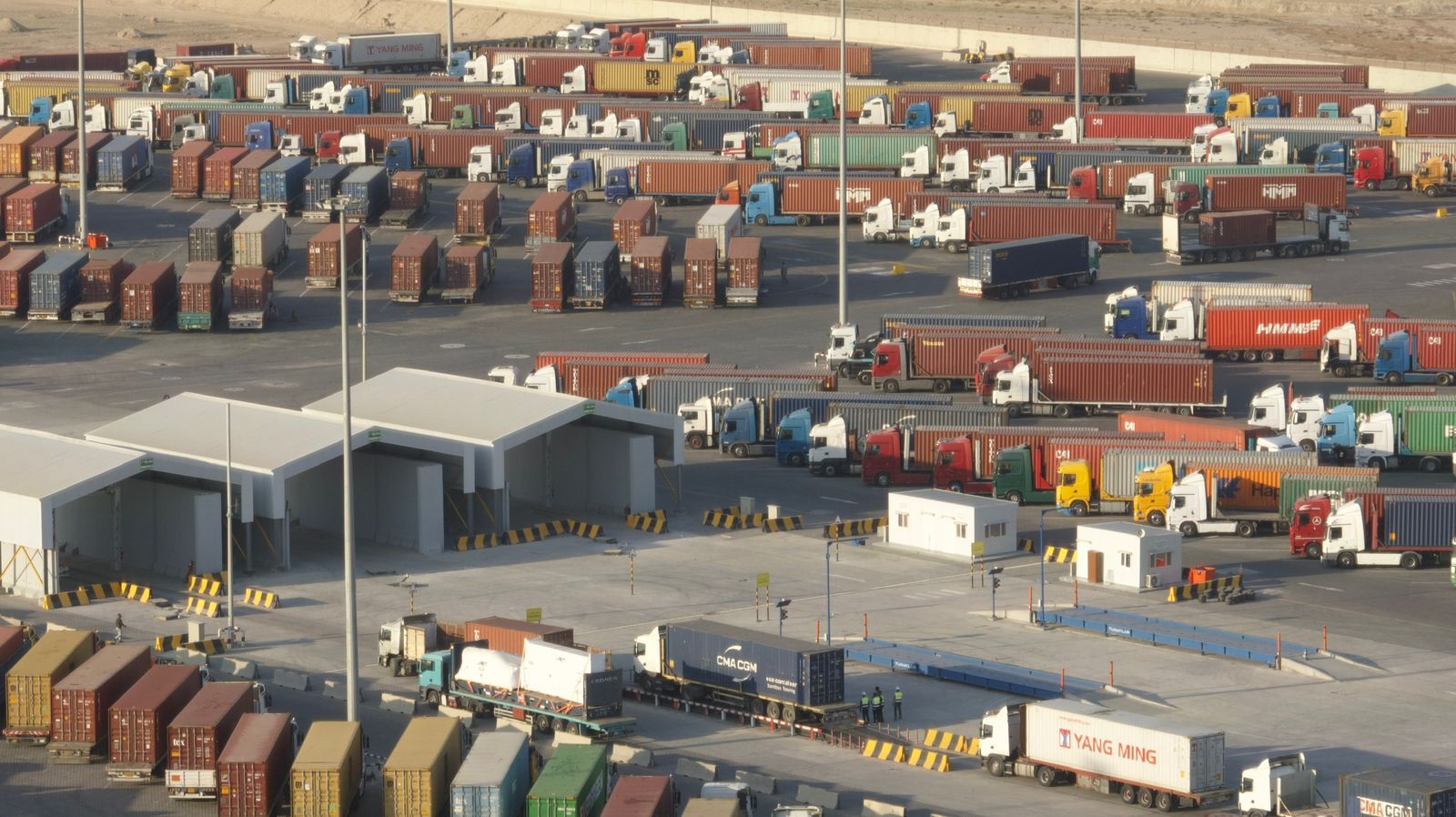Iraqi ports emerge as key transit points amidst international shipping route changes

Shafaq News / The Iraqi Ministry of Transport announced on Sunday that, coinciding with the alteration of routes by several major international shipping companies due to security tensions in the Red Sea and Bab-el-Mandeb strait, Iraqi ports have emerged as alternative transit points for global cargo transportation from East to West.
Farhan Al-Fartousi, Director-General of the Iraqi Ports Company, stated, "Under the directives of the Minister of Transport, Razzaq Muhaibis Al-Saadawi, we are ensuring that Umm Qasr Ports are fully prepared for any local or international needs to accommodate increased container traffic. This comes after the security tension in the Red Sea prompted several major international shipping companies to suspend their routes, especially those transporting goods between Europe, the Arabian Gulf, and East Asia, and vice versa."
Al-Fartousi explained that "Iraq, due to its strategic location linking East and West, is currently one of the safest and most convenient transportation routes. Consequently, we anticipate a substantial surge in container handling at Umm Qasr Port in the near future," affirming that "Iraqi ports are ready for such an escalation in operations."
He added, "Iraqi ports have become a crucial transit point for transporting goods from Europe through Turkey's Mersin Port, onward to Iraq, the Gulf, and East Asia, as well as vice versa for Chinese goods headed to Europe."
The Director-General of the Iraqi Ports Company further emphasized, "This clearly highlights the significance of our major project, the Grand Faw Port and the Development Road, currently being implemented by Iraq. They have become an international demand, even a pressing necessity, to ensure secure maritime navigation and transportation worldwide."
Notably, the French global shipping company, CMA, recently made a similar decision to Maersk Line's suspension of commercial vessels traversing the Red Sea. This decision has led to a significant rise in cargo transportation through alternative routes, including land or sea passages.





